DIANE'S CORNER ...
Celebrate In'l Animation Day

Animation is everywhere these days, and most of us have been raised on it. Starting with our Saturday Morning Cartoons that we enjoyed with our sugary bowl of cereal, straight through to our favorite video games and movies of today, our view of the world has often been shaped by this amazing art form.
History of International Animation Day
The International Film Association was originally established in France, and was organized for the purpose of recognizing all forms of cinema and art. Among them was Animation, and thus they developed International Animation Day in 2002 to serve as the pinnacle event in the celebration of the rising art of animation.
Animation is the art of creating the illusion of movement through a series of images that each show a separate stage of the animation, then displayed at a set rate through a projector. The original animation was known as ‘cel-animation’ or ‘hand-drawn animation’, and was quite literally drawn frame by frame into the animated characters that we’ve come to enjoy.
More modern renditions of animation are done via CGI, and these often emulate the age old method of animation that is hand-drawn, while others use computer animation to bring the art into the modern world. All styles of this art-form have their own appeal, and many fans have rallied behind one or the other as the ultimate form of animation.
Other forms of animation that carry their own aesthetic are stop-motion animation where individual pictures are taken and streamed together to create an animated film. These methods often include complex sets and gorgeous dolls, but have also been done with clay as a medium. These forms are often called claymation.
Animation has been used in everything from short commercials to full feature length films, and have served as a method of delivering everything from entertainment to information through an accessible medium.

Word of the Day
| |||
| Definition: | (verb) To break out anew or come into renewed activity, as after a period of quiescence. | ||
| Synonyms: | develop, break | ||
| Usage: | These political movements recrudesce from time to time. | ||

Idiom of the Day
Peter Pan syndrome— A psychological state or condition in which a grown person cannot or refuses to act like an adult; a stubborn and persistent immaturity found in an adult person. |

This Day in History
Maxentius Becomes Emperor of Rome (306 CE) |
|---|
Shortly after Roman co-emperors Diocletian and Maximian retired, Maximian's successor, Constantius, died. The Romans, discontented with the shift of power away from Rome, supported Maximian's son, Maxentius, who claimed the throne. His father came out of retirement to help him when Severus and Galerius claimed the throne and tried to overthrow him. Severus was compelled to surrender, and Galerius withdrew. Maxentius and his father fell out,.
Auguste Escoffier (1846)
Escoffier was a legendary French chef credited with inventing peach Melba and other classic dishes. He began his career in his uncle's kitchen, and by the time he retired some 60 years later, he had directed the kitchens of several grand European hotels and earned himself a reputation as the "Emperor of Chefs." In 1903, he published Le Guide Culinaire, which contains 5,000 recipes and is still used today as both a cookbook and cooking textbook.
Ochi Day
Ochi Day is a national holiday in Greece, commemorating the day during World War II when Greeks said "ochi" ("no") to an attempted incursion ordered by Italy's fascist dictator, Benito Mussolini. On October 28, 1940, the Italian ambassador to Greece called on Gen. Ioannis Metaxas, the prime minister, to demand that Italian troops be allowed to occupy areas in Greece. Metaxas curtly responded, "Ochi." The Italians invaded, but were routed by the Greeks. Ochi Day is observed in Greece with military and school parades; it is also a public holiday celebrated in Cyprus with parades.
T. Rex's puny arms were useful after all
Tyrannosaurus rex and other meat-eating dinosaurs are often mocked for their laughably puny arms, but new research indicates that these fearsome predators could do a lot more with these little limbs than previously realized. By studying the arm movements of two ...
READ MORE:
READ MORE:
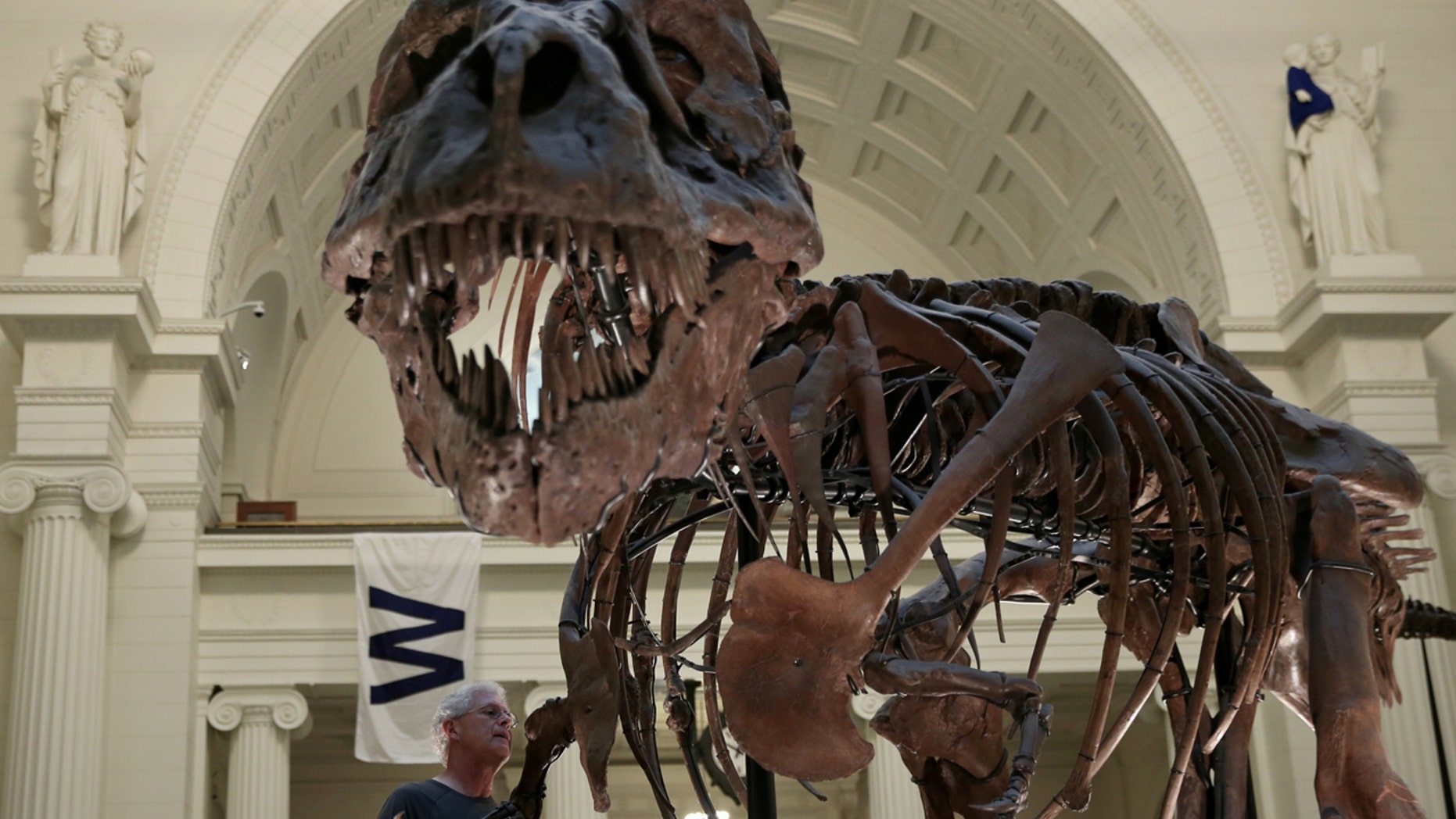
1636 - Harvard College was founded in Massachusetts. The original name was Court of Massachusetts Bay Colony. It was the first school of higher education in America.
1793 - Eli Whitney applied for a patent for his cotton gin.
1886 - The Statue of Liberty was dedicated in New York Harbor by U.S. President Cleveland. The statue weighs 225 tons and is 152 feet tall. It was originally known as "Liberty Enlightening the World."
1893 - Peter Ilyich Tchaikovsky conducted his first public performance of his Symphony Number Six in B minor "Pathetique."
1904 - The St. Louis Police Department became the first to use fingerprinting.
1919 - The U.S. Congress enacted the Volstead Act, also known as the National Prohibition Act. Prohibition was repealed in 1933 with the passing of the 21st Amendment to the U.S. Constitution.
1949 - U.S. President Harry Truman swore in Eugenie Moore Anderson as the U.S. ambassador to Denmark. Anderson was the first woman to hold the post of ambassador.
1956 - Elvis Presley's song "Love Me Tender" became the No. 1 Billboard Pop Hit. He became the first artist to follow himself into the No. 1 position. The song "Don't Be Cruel/Hound Dog" had been the No. 1 song for 11 weeks.
1958 - Angelo Giuseppe Roncalli was elected Pope. He took the name John XXIII.
1965 - The Gateway Arch along the waterfront in St. Louis, MO, was completed.
1988 - Roussel Uclaf, a French manufacturer that produces the abortion pill RU486, announced it would resume distribution of the drug after the government of France demanded it do so.
2007 - The game "Guitar Hero III: Legends of Rock" was released in North America.

DAILY SQU-EEK

If You Were Born Today, October 28
Some might say you are a law unto yourself. You combine originality with a sharp and logical mind into a very intriguing "package." Able to dig deep and come up with treasures, you are never satisfied with what appears to be, which gives rise to some restlessness. Warm and affectionate, you value your "down time" with family, as well as your privacy. However, when push comes to shove, you know you have yourself to rely on. You have a pioneering quality that is unmistakable. Famous people born today:
 1466 Desiderius Erasmus, Dutch humanist and theologian (The Praise of Folly), born in Rotterdam, Netherlands (d. 1536)
1466 Desiderius Erasmus, Dutch humanist and theologian (The Praise of Folly), born in Rotterdam, Netherlands (d. 1536) 1896 Howard Hanson, American classical music composer and conductor (Nordic), born in Wahoo, Nebraska (d. 1981)
1896 Howard Hanson, American classical music composer and conductor (Nordic), born in Wahoo, Nebraska (d. 1981) 1914 Jonas Salk, American medical scientist (created the polio vaccine), born in NYC, New York (d. 1995)
1914 Jonas Salk, American medical scientist (created the polio vaccine), born in NYC, New York (d. 1995) 1937 Lenny Wilkens, NBA Point Guard and Head Coach (Seattle SuperSonics), born in Brooklyn, New York
1937 Lenny Wilkens, NBA Point Guard and Head Coach (Seattle SuperSonics), born in Brooklyn, New York 1955 Bill Gates, American businessman and billionaire (founder and CEO of Microsoft, richest person in the world), born in Seattle, Washington
1955 Bill Gates, American businessman and billionaire (founder and CEO of Microsoft, richest person in the world), born in Seattle, Washington 1967 Julia Roberts, American actress (Mystic Pizza, Pretty Woman), born in Smyrna, Georgia
1967 Julia Roberts, American actress (Mystic Pizza, Pretty Woman), born in Smyrna, Georgia
READERS INFO
1.
1726 -
|
2.
1886 -
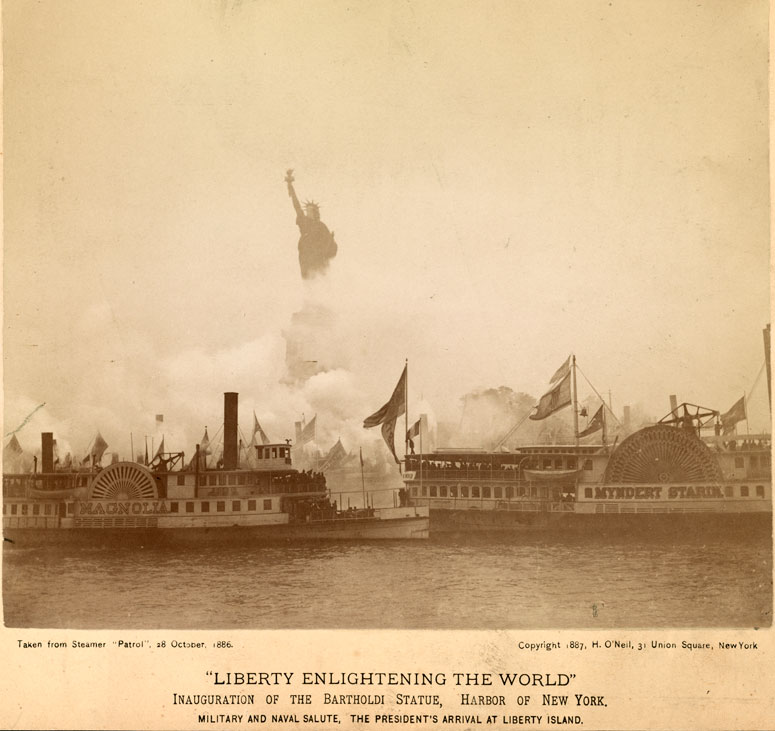
The Statue of Liberty was dedicated in New York Harbor on this day in 1886 by U.S. President Cleveland. The statue weighs 225 tons and is 152 feet tall. It was originally known as "Liberty Enlightening the World."
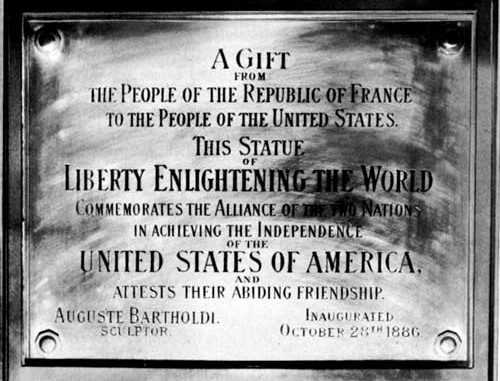
3.
SUNDAY'S INTERESTING FACTS
3.
PATTERN BOOK SUNDAY

Crochet Today 2009-11 : Crochet Today

Pictures of the day

The black-headed lapwing(Vanellus tectus tectus). It is a resident breeder across sub-Saharan Africa from Senegal to Ethiopia.

Pictures of the day

The black-headed lapwing(Vanellus tectus tectus). It is a resident breeder across sub-Saharan Africa from Senegal to Ethiopia.
Jameh Mosque of Isfahan
“This one of the oldest mosques in Iran and is the result of continual construction, reconstruction, additions and renovations on the site from around 771 C.E. to the end of the 20th century.” Ispahan, Iran

knit
thanks, Millie
SPLIT RIB COWL
knit
thanks, Heide
knit
OMBRE CARDIGAN

ELEGANT LACY SHAWL
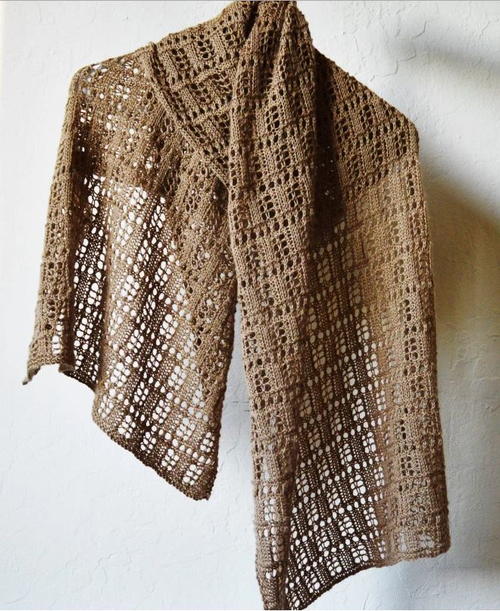

crochet
thanks, Helen
crochet
thanks, Ann
crochet
crochet
crochet


RECIPE
CROCKPOT RECIPE

SWEETS ... Halloween
thanks, Shelley
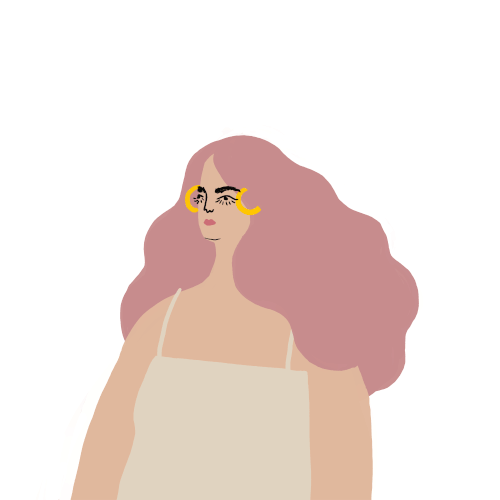
COOKBOOK SUNDAY
The Stone Soup Cookbook
ADULT COLORING
CRAFTS ... Halloween
thanks, Kathy
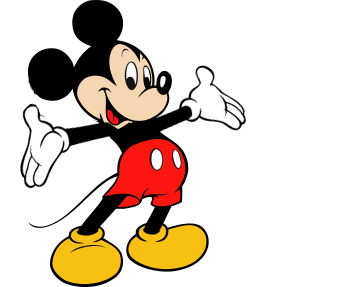
CHILDREN'S CORNER ... Halloween
thanks, Sally


PUZZLE
avoid blunt borrow broom cancel cites core create devise diaper done dream
empty enjoy improve indicative interest lent maintenance mutual obsess
percussive person point respect rest resume seen share slide smile someday strife sufficient
trace veal veers wedge

SUDOKU ... easy
solution:

QUOTE


CLEVER
Bubbly nail polish?

Put it in the fridge

EYE OPENER
10 Relics From the Horse-Powered City
Hiding in Plain Sight
The commerce and transportation of modern cities initially relied on the horse. While there are still places where they serve a vital role, on the whole the horse has disappeared from the urban environment as cars, trains, subways, and other hoofless transportation took over in the 20th century. Look closely enough, though, and you can still find reminders of this equine past in our infrastructure.
1. STABLES

A city powered by horses needs shelters for them to rest and sleep. Stables and carriage houses thus once lined the streets, their arched doorways still recognizable even when converted into homes and businesses. Mews all over London still have rows of stables, often dating to the 17th and 18th centuries, which are almost entirely now housing. According to the Greenwich Village Society for Historic Preservation, in just New York City, there were around 4500 stables by the beginning of the 20th century.
Artists were sometimes the first to take over stables after the horses had gone, appreciating their roomy floorplans. MacDougal Alley in Manhattan, for example, changed over from horses to sculptor and painter residents in the Gilded Age. Elsewhere, sculptures of horse heads still crane their necks from former stable façades, such as on 19th century stables inRittenhouse Square in Philadelphia, and the 1906 stable for Schlitz brewery in Chicago.
2. HORSE WALK
Some carriage houses incorporated "horse walks": interior passageways that allowed a horse to walk from the street to a stable. Dense urban areas like New York City still have evidence of these discrete entrances, such as at 7 Leroy Street in Greenwich Village, constructed in 1831, and 336 West 12th Street in the West Village, from the 1850s. Often they just appear as a door alongside the main entrance to the home, wide and tall enough for a horse to slip through.
3. EQUESTRIAN STAIRCASES

Equestrian staircases are most often found in old European cities, built into or alongside castles and other complexes as sloping steps for horses to access upper floors. A 16th century example in Vladislav Hall at Prague Castle, for instance, has a "rider's staircase" so knights didn't have to dismount to enter. In Bologna, the town hall contains a huge staircase designed by Renaissance architect Donato Bramante to accommodate carriages.
4. TROUGHS

Horses have to drink, but urban settings rarely have convenient streams with clean water. Organizations concerned with animal welfare—like the Metropolitan Drinking Fountain and Cattle Trough Association, formed in 1859 in London—spearheaded the construction of troughs with freely available water. Henry Bergh with the ASPCA was particularly involved with installing troughs with fresh water around New York City, and a few are still visible, including a low granite one by the carriage horses that still give tourists rides in Central Park. The trough in Grand Army Plaza is one of the many funded by local Edith Bowdoin, and was rededicated in 2001 at its current site. The troughs weren’t the ASPCA’s only initiative for Manhattan steeds, however: They also offered free showers on the streets and gave out eye-shading straw hats for horses with specially designed ear holes.
5. FOUNTAINS

Like troughs, horse fountains offered water for city stallions, but fountains were often incredibly elaborate. One with a clock and Shakespeare quotes from the 1880s can still be seen in Stratford-upon-Avon, England. The 1919 Gumbel Memorial Fountain in New Orleans is adorned with a dramatic sculpture by Isidore Konti, and the Temperance Fountain in Washington, D.C. has water flowing from the mouths of dolphins, the overflow of which was collected for horse drinking. As that one’s name suggests, many of these doubled as temperance fountains, built to encourage humans to drink water instead of beer. Others were simply donated by animal-loving philanthropists, like advertising agent John Hooper, who died in 1889 and left $10,000 for two fountains "whereat man and beast can drink." The 1894 Hooper Fountain in Manhattan has a monumental column topped with a lantern, with a broad basin below fit for horse muzzles.
6. AUCTION HOUSES
Horses did not come into the cities through spontaneous generation. Auction houses were a common sight for the horse trade, with large entryways similar in structure to private stables. The grand Winter Garden Theatre on Broadway in Manhattan, for instance, was erected in 1896 as the American Horse Exchange. Artists later converted these as well, including the Beaux-Arts 1904 Van Tassel and Kearney Horse Auction Mart at 126-128 East 13th Street in New York City. After it ceased sales in the 1920s, it was a candy factory and school before artist Frank Stella purchased it in 1978. He moved out in 2005, and it’s now a dance center.
7. HORSE BLOCKS

To give carriage passengers and horseback riders a boost, mounting blocks were installed in locations of regular use. Basically just a block of stone or a tiny staircase, a few are still preserved in the sidewalks. London’s Waterloo Place has one from 1830, which, according to its plaque, was placed “by the desire of the Duke of Wellington” (see above). Another of these upping stones is inscribed with the initials "WW" in Camden, New Jersey, just outside the house of none other than poet Walt Whitman.
8. HITCHING POSTS

Hitching posts weren’t just a Western fantasy for cowboys in saloons—all cities with horses needed convenient tethering points to keep the animals from straying. Often just a pole with a ring, others were more elaborate, like the horse-shaped ones in Brooklyn’s 19th century Green-Wood Cemetery, and in the historic French Quarter of New Orleans. You can even find a combo version in Homer, New York, that’s both a hitching post and a mounting step.
9. TETHERING RINGS
More integrated into the infrastructure than hitching posts but basically serving the same purpose, tethering rings are discreet metal loops embedded in walls, sidewalks, and curbs. They are sometimes ornate, like the one shaped like a dragon in Florence, Italy, that doubles as a sconce (above), but on the whole they are plain. Now mostly obsolete, some have found an unusual afterlife in Portland, Oregon, where they host ephemeral art installations, including tiny horses.
10. HORSECAR TRACKS

Before there were trolleys and then buses, above ground transportation often involved the horsecar. Omnibuses were pulled by horses on rails, and these tracks would often transition over to be used by electric cars. The horsecar tracks in Portland, Oregon changed over to electricity in the late 1800s, while the former horsecar tracks in Charlotte, North Carolina were turned electric and began operation in 1891. During the turn of the last century, horses and trolleys would sometimes be riding side-by-side. A photographer in Manhattan caught one of the last horsecars riding the rails in 1917, while the electric trolley raced alongside, and presumably overtook, the fading fixture of transportation.







No comments:
Post a Comment